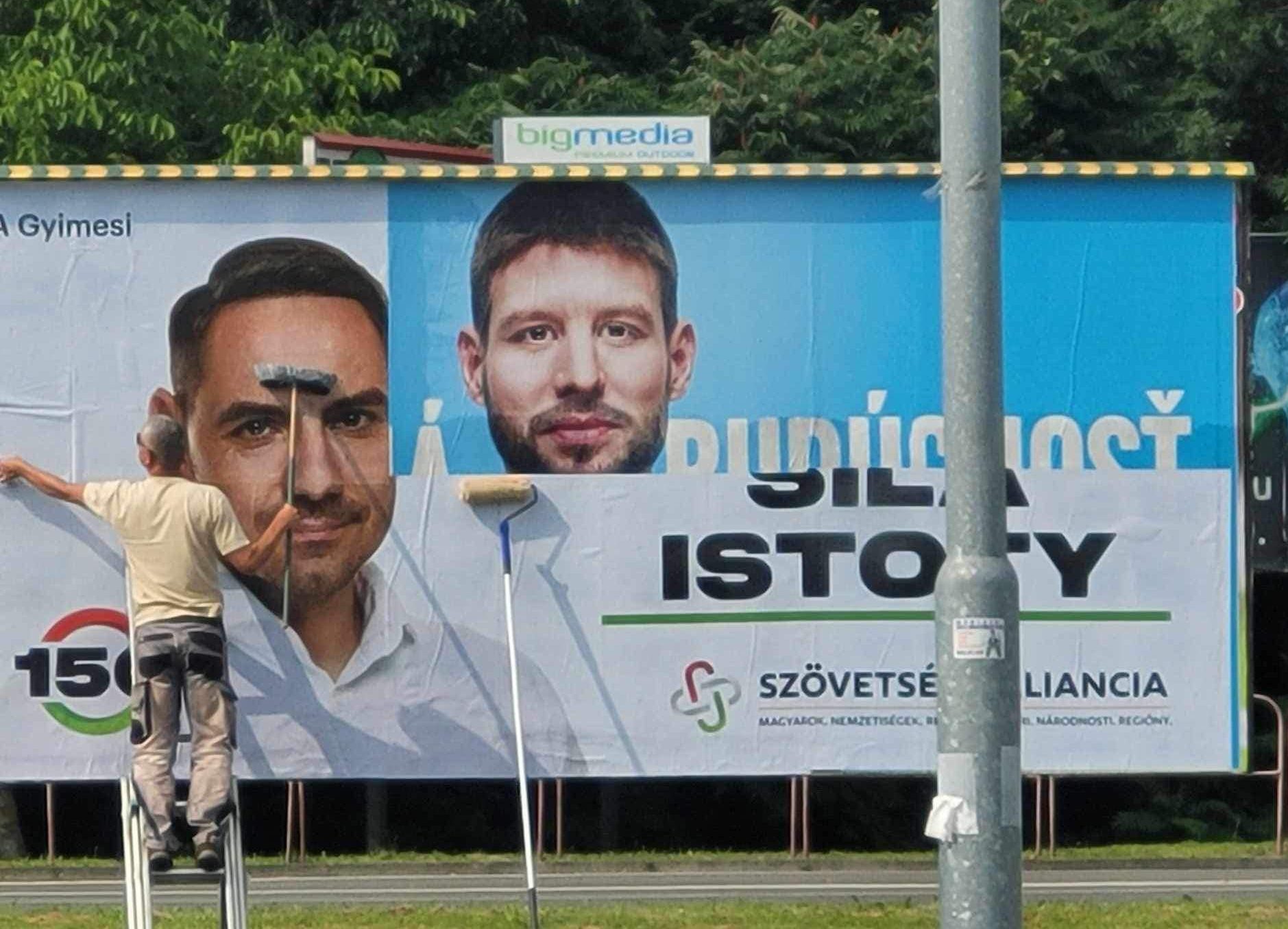
Alliance (Szövetség) politician György Gyimesi had spoken to us about the sudden influx of illegal migrants in Slovakia.Continue reading
Despite the conspicuous silence from the liberal Slovak mainstream media and the best efforts of the Slovak government to sweep the growing migrant crisis under the carpet, the issue exploded in Hungary’s northern neighbor’s face only three weeks before parliamentary elections. Public anger and fear had reached levels that were impossible to ignore any longer. The Slovak politicians’ solution? Blame the Hungarians.

Migrants in Slovakia. Photo: Facebook Anett Kupová.
As thousands of migrants march through the streets of sleepy Slovak towns and villages, national-conservative and right-wing opposition parties in the country were quick to point their fingers at their openly pro-migration, Europhile caretaker government in Bratislava. The caretaker government, appointed by President Zuzana Čaputová, fearing that the issue would drive votes to the right-wing opposition, had to find an answer, an excuse, and a scapegoat as matter of urgency.
The caretaker prime minister of the country, a former guest lecturer at George Soros’ Central European University, was entrusted with the role of calming the population, promptly declaring the crisis as non-existent. “Illegal migration is not an immediate threat to Slovakia. The situation is under control, Ódor said after a cabinet meeting, adding that no serious incidents had been recorded. Given the scale of the crisis that is now playing out on the screens of television channels, it is fair to say that his astonishingly disingenuous answer calmed no one. Especially after quick checks discovered two terrorism suspects among the “under control” migrants.

Caretaker Prime Minister Ludovít Ódor. Photo: Twitter Ludovít Ódor
The country’s President, Zuzana Čaputová, who has close ties with the radical left-wing party Progressive Slovakia, was clearly handed the “bad cop” role. True to her passionate Europhile self, she immediately identified the culprit to the south of the borders, in Hungary. Although it is a fact that most of the Middle-Eastern illegal migrants are coming from Hungary, she quickly understood that criticizing Hungary purely for this would mean that she would also have to spread the blame among all the rest of the transit states, from Italy to Serbia, if she went down this route.

Photo: Twitter Zuzana Caputová
Instead, she stated that “the number of migrants we have in Slovakia were previously in Hungary. The fact is that they are coming to us without any problems,” she stated. She also described the release of over 1,400 people convicted of human smuggling in Hungary in August as “surprising.” The openly pro-migration president, who supports the EU’s migration pact, and is for accepting migrants from other parts of Europe, however, did not answer the obvious question, as what Slovakia’s police and border patrol’s role should be, when thousands of migrants are crossing her country’s borders “without problems.”
Instead, she suggestively pointed at Hungary as the sole party responsible for protecting Slovakia’s borders. Ignoring the fact that Hungary had built the most formidable anti-migrant fence on its southern borders that had helped to intercept over a million migrants since 2015, she tried to portray Hungary as the irresponsible party in this affair, that should be blamed for the migrant crisis engulfing her country. The fact that illegal migration in Slovakia is escalating since at least 2022, and that anyone who has since crossed the borders between Hungary and Slovakia knows that there are no border checks, seems to have escaped her attention.
Pointing the finger at Hungary because of the Orbán government’s decision to release some 1,500 people smugglers from prisons and to expel them, is also political gaslighting. The controversial decision made by the Orbán government in August was deeply unpopular even among his own voters, however, the reasons were hard to argue with: prison overcrowding, human rights lawyers suing the socks off the prison service for the resulting “inhumane conditions,” and the astronomical bill for caring for nearly three thousand human traffickers. A single prisoner costs the Hungarian treasury some five million forints a year (EUR 13,000). Orbán’s logic was:
if neighboring countries together with the EU want to continue to enjoy the benefits of the Hungarian taxpayer-funded border security, then they need to contribute financially in the future. If not, they can have the smugglers, together with their human cargo.
In the past, the government in Budapest had been accused of a colossal variety of things, but being the source of a migrant crisis is a first. As Hungarian President Katalin Novák pointed out in her reaction to the Slovak accusations, Hungary will certainly not be Slovakia’s problem with illegal migration. Novák also underlined that she would be happy if Slovakia became Hungary’s ally in stopping mass migration, but added that she had not yet received any initiative from the Slovak side on the subject.

Slovak President Zuzana Čaputová (L) with her Hungarian counterpart, Katalin Novák. Photo: Twitter Zuzana Čaputová
One can certainly not expect the current Slovak government and president to take the issue to Brussels, where a solution to the entire migrant crisis could not be found for the past eight years. However well this may play out with the often Hungarophobic left in Brussels, even Čaputová’s circles know that the absurd line about Hungarian “complacency” towards illegal migration will not prevent human smugglers from exploiting Slovakia’s weakness, consequently driving votes to the right. If concern for the safety of Slovakia’s citizens does not, then the coming elections might just force their hands to address the issue.
Featured photo: Facebook Jozef Cuper